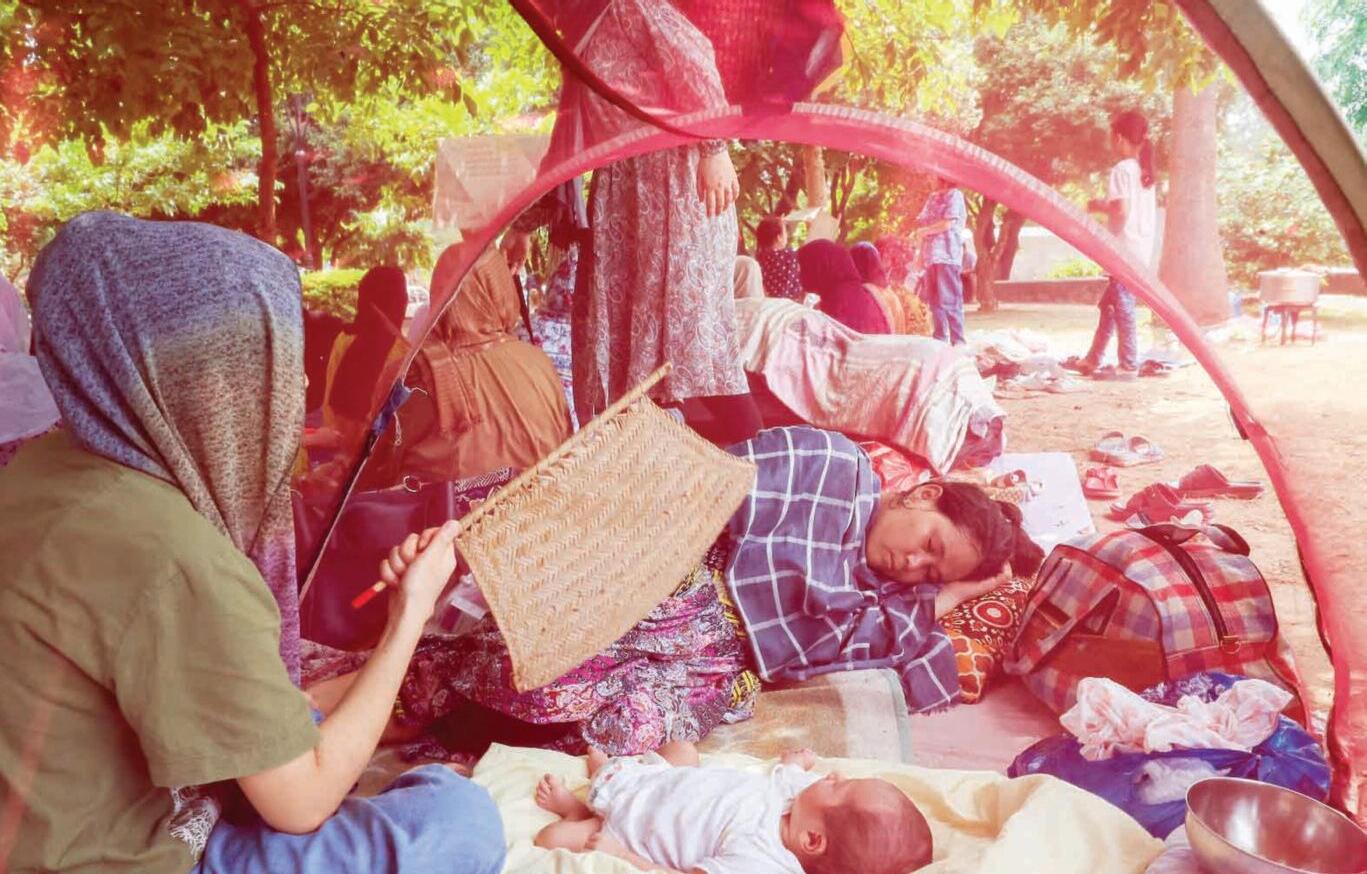

PM URGES ‘PROACTIVE, NOT PROVOCATIVE’ LEADERSHIP AS HE RECALLS PAK-INDIA MAY CONFLICT AT UNGA
g PREMIER SHEHBAZ CREDITS PRESIDENT TRUMP FOR AVERTING SOUTH A SIA WAR, WARNS OF FRAGILE PEACE AFTER MAY ’S FOUR-DAY ESCALATION WITH INDIA
g PRAISES PAKISTAN ’S ARMED FORCES FOR REPELLING ‘ UNPROVOKED AGGRESSION,’ THANKS PRESIDENT TRUMP, AND NOMINATES HIM FOR NOBEL PEACE PRIZE
g EXPRESSES SOLIDARITY WITH PALESTINIANS, CALLS GAZA A ‘DARKEST CHAPTER OF HISTORY,’ REITERATES PAKISTAN’S STANCE ON KASHMIR AND INDUS WATERS TREATY
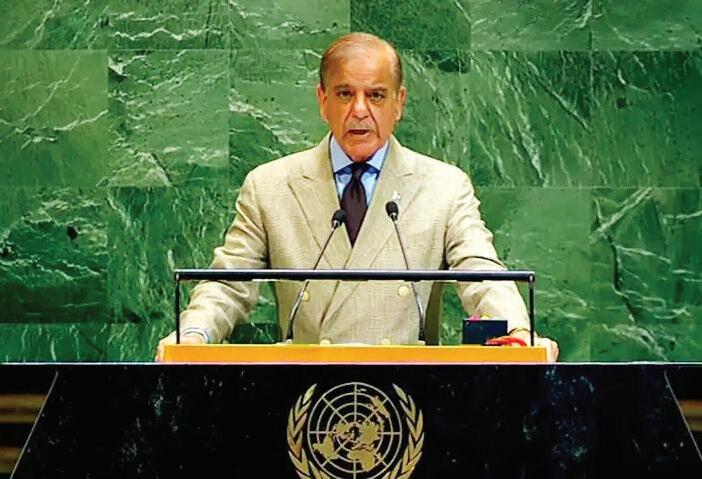
R I M E Minister Shehbaz Sharif on Friday used his address to the 80th session of the United Nations General Assembly (UNGA) to call for proactive rather than provocative lead-
Recounting
g URGES CLIMATE JUSTICE, REJECTS DEBT-DRIVEN SOLUTIONS FOR VULNERABLE NATIONS
pM, president trump vow stronger pak-uS ties in first o val o ffice meeting
WASHINGTON/ISLAMABAD
Prime Minister Shehbaz Sharif on Friday held his first formal meeting with US President Donald Trump at the Oval Office where the two leaders discussed regional security, counterterrorism cooperation, trade, and prospects for strengthening Pakistan-US relations The high-stakes meeting lasted over an hour was attended by top officials from both sides and marked a significant step forward in what American officials described as gradually warming relations between Washington and Islamabad According to a statement from the Prime Minister ’s Office the premier was accompanied by Chief of Army
standing by Pakistan during the crisis
defence pac t formalises decades long ties, not linked to regional conflic t: Kh Asif
NEW YORK/ISLAMABAD
s ta f f r e p o r t
Defence Minister Khawaja Asif has clarified that Pakistan s recently signed defence agreement with Saudi Arabia is not linked to Israel s attack on Qatar, but rather the culmination of decades of military cooperation between Islamabad and Riyadh He said the pact formalises a long-standing security relationship while also underscoring Pakistan s nuclear restraint and evolving hybrid governance model
In an interview with Britishborn American journalist Mehdi Hasan Khawaja Asif explained that Pakistan and Saudi Arabia s
defence ties stretch back five to six decades, with Pakistani troops historically stationed in the Kingdom At one point, he noted, nearly 4,000 to 5 000 personnel were deployed on Saudi soil many of whom remain in advisory and training roles
The purpose of the recent agreement was to shape this partnership into a regular structure rather than to forge something entirely new ” Asif said He added that the pact “only practicalised defensive relations that have been established for a long time which had previously operated on a transaction-by-transaction basis
On the subject of nuclear weapons the defence minister re-
iterated Pakistan s long-standing stance on restraint After Hiroshima and Nagasaki, no nuclear power is in favour of using these weapons ” he said affirming Pakistan s commitment to tolerancebased global values on non-proliferation
Turning to domestic issues, Khawaja Asif reflected on Pakistan’s political journey, admitting that “our democracy has not reached its peak but we are on the path Sharing his own experience he recalled spending six months in jail without any crime, framing it as part of the country s evolving democratic struggle
SC upholds president ’s power to transfer judges, warns against ‘political misuse’
The Supreme Court has upheld the president’s authority to transfer judges from one
court to another under specific conditions while stressing that such transfers must only be made in the public interest and not as punitive or politically motivated measures The apex court’s constitutional bench (CB) on Thursday released a detailed 55-page verdict on petitions filed against the February transfer of three judges to the Islamabad High Court (IHC) On February 1, the Ministry of Law issued a notification transferring Justice Sardar Muhammad Sarfraz Dogar from the Lahore High Court Justice Khadim Hussain Soomro from the Sindh High Court, and Justice Muhammad Asif from the Balochistan High Court to the IHC The notification was endorsed by the president Following the transfers the IHC issued a new seniority list ranking Justice Dogar as the senior puisne judge Five IHC judges filed representations against the revised list, but the then IHC Chief Justice Aamer Farooq dismissed their objections Subsequently the judges and other petitioners including PTI founder Imran Khan, challenged the notification and seniority list before the Supreme Court

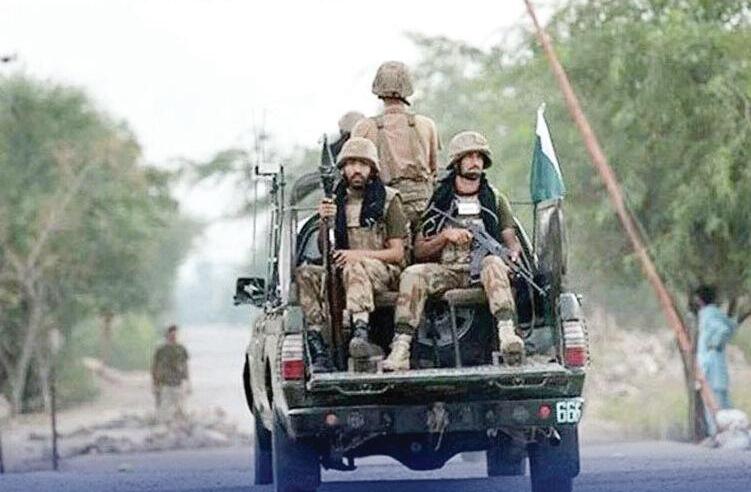
17 terrorists killed in major Karak operation, three securit y men injured

as optimism grows over US-Pakistan ties

MARI OGDC PPL POL SNGPL and PSO all traded in the green Analysts attributed the rally to an improved economic outlook for Pakistan, with Samiullah Tariq, Head of Research at Pak-Kuwait Investment Company highlighting continued economic recovery and improved
clearing the backlog with pendency reductions of 78% 61%, and 43%, respectively At the Supreme Court, 11 cases were decided, and 171 cases challenging CCP’s mandate were consolidated for a single hearing Over the past year the commission recovered PKR 360 million surpassing the total PKR
It furthers
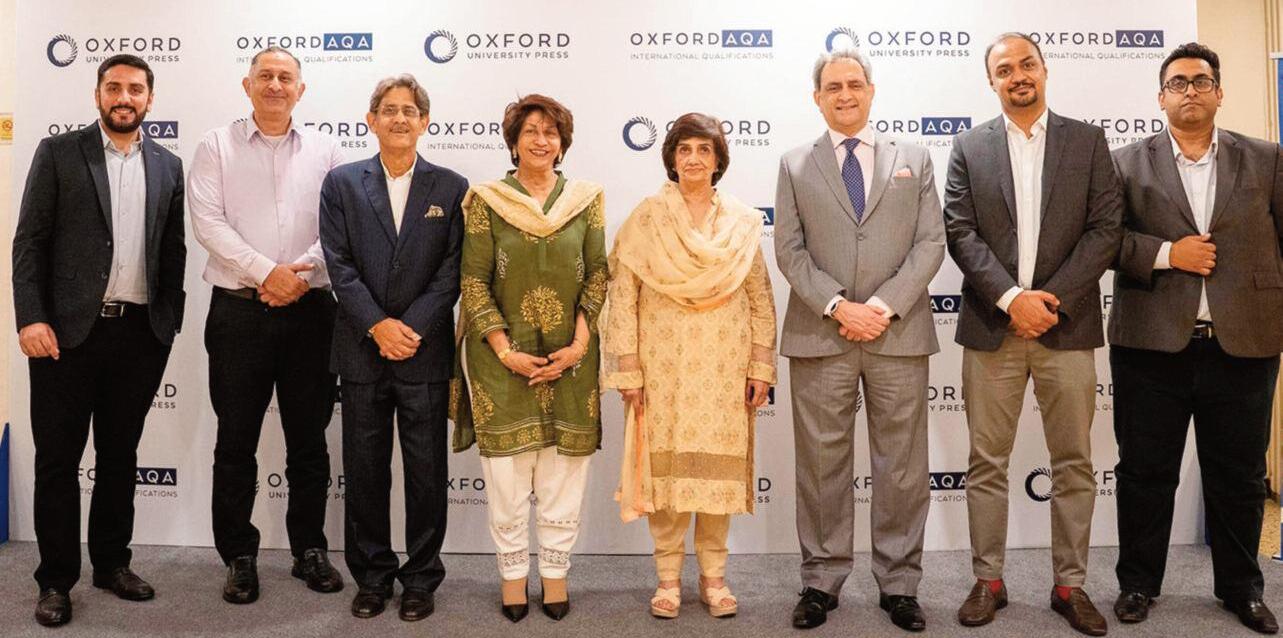
lighted how the initiative supports both academic rigor and cultural relevance:
and
ness of
and literature The curriculum content is strategically positioned within the broader context of global developments and its focus on independent research, and reflective collaboration offers students not only an academic challenge, but the opportunity to develop citizenship and a real-world impact At the heart of OxfordAQA s philosophy lies a commitment to test subject ability alone, using clear language, and culturally relevant content, to give every student the best opportunity to succeed, with a strong emphasis on student and teacher well-being Building on this vision Salma Adil Director of OxfordAQA Pakistan high-
“We are delighted to introduce assessments and textbooks for Urdu Islamiat and Pakistan Studies This milestone reflects our commitment to supporting schools with academically rigorous and culturally relevant resources that strengthen learning across Pakistan Renowned historian and educationist Nigel Smith with over three decades of teaching experience and more than twenty-five published works spoke to the broader purpose of the initiative: The launch of these new mandatory subjects is about equipping young people with the updated knowledge, and skills We hope to see them more confident in navigating the evolving pedagogical landscape Together these perspectives capture the spirit of OxfordAQA s mission: to combine global standards with local relevance, ensuring that students in Pakistan are prepared not only for academic success but for the opportunities and chal-
PM urges ‘proactive, not provocative’ leadership as he recalls Pak-India May conflict at UNGA
voiced strong solidarity with Palestinians denouncing Israel s genocidal onslaught in Gaza as one of the darkest chapters of history Citing the case of Hind Rajab, a child victim, he declared: The smallest coffins are the heaviest to carry we cannot and must not fail the children of Gaza ” He reaffirmed Pakistan’s commitment to a sovereign Palestinian state with pre-1967 borders and Jerusalem as its capital while appreciating Trump s recent initiative to consult Muslim leaders on Gaza On Kashmir the premier reiterated Islamabad s stance that India s tyranny would one day come to a grinding halt and stressed the right of Kashmiris to self-determination through a UN-supervised plebiscite He also rejected India’s attempt to put the Indus Waters Treaty in abeyance vowing to defend Pakistan s rights over its waters Turning to global challenges Shehbaz Sharif said the world today faces intensifying conflicts violations of international law, climate emergencies, terrorism, and disinformation He condemned terrorism in all forms and manifestations,” recalled Pakistan’s sacrifices in the global war on terror and urged the Afghan interim government to prevent its soil from being used against neighbors while ensuring women s rights and inclusivity The prime minister also warned against the dangers of Islamophobia, citing Hindutva-driven extremism in India, and welcomed the UN s decision to appoint a special envoy to combat anti-Muslim hatred
lenges of the future OxfordAQA s vision is to foster equity, inclusivity, and highquality education, that empowers the future generations of Pakistan to thrive both within their local communities and on the global stage ABOUT OXFORDAQA OxfordAQA is an international exam board that provides International GCSEs and A-levels to schools across the world Created as a partnership between Oxford University Press a department of the University of Oxford and AQA the UK s largest provider of GCSEs and A-levels OxfordAQA is built on unrivalled experience and expertise in education and assessment OxfordAQA qualifications are designed specifically for international students to equip them with the higher-order skills they need to succeed at university and beyond ABOUT OXFORD UNIVERSITY PRESS Oxford University Press (OUP) is a department of the University of Oxford
P e s h a w a r, a n d F a i s a l a b a d T h e P r e s s f o c u s e s o n e d u c a t i o n p u bl i s h i n g s c h o o l t e x t b o o k s h i g h e r e d uc a t i o n a n d a c a d e m i c b o o k s a n d r e f e r e n c e m a t e r i a l T h e b o o k s c o v e r a w i d e r a n g e o f s u b j e c t s , i n c l u d i n g l a w, e c o n o m i c s , l i t e r a t u r e , a n d m o r e O U P P a k i s t a n a l s o e m p h a s i z e s l o c a l c o nt e n t s u p p o r t i n g P a k i s t a n i a u t h o r s a n d b o o k s o n P a k i s t a n I t d i s t r i b u t e s i t s p u b l i c a t i o n




Shehbaz-Trump meeting
Unscheduled meeting sign of improving ties
R
In

Dedicated
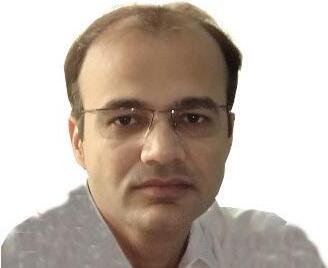


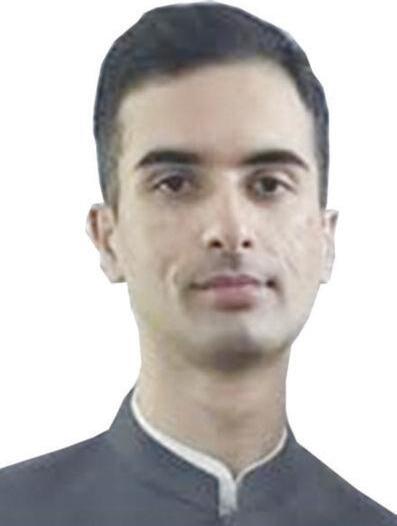

ADemographic Imbalance: Pakistan s political system faces a widening gap between its demographic reality and the profile of its elected representatives With nearly 64 percent of the country’s population under the age of 30 Pakistan is one of the youngest nations in the world Yet the National Assembly and provincial legislatures remain overwhelmingly dominated by older established figures many of whom belong to political dynasties This mismatch raises pressing questions about representation, renewal, and the avenues through which younger Pakistanis can participate in shaping the country’s future The Weight of Dynastic Politics: The imbalance becomes evident when examining parliamentary composition According to data compiled by the Inter-Parliamentary Union the average age of legislators in Pakistan is over 50, while only a small fraction is under 35 The contrast with the broader population is stark The voices of a youthful citizenry, dealing with issues such as unemployment climate vulnerability and education reform are filtered through leaders who often do not share their lived experiences In practice this means that legislation and policy rarely emerge from the priorities of the country s largest demographic group And even when parties allocate seats or give tickets to the youth, most of the time the allocation is done to youth from established political dynasties A recent study by PILDAT found that nearly two-thirds of sitting legislators in Punjab and Sindh come from families with established political legacies This reliance on lineage over merit sidelines emerging candidates without similar family backgrounds, regardless of their professional achievements or grassroots engagement The recycling of names and families sustains continuity but stifles renewal leaving little space for new policy development framework rhetoric or leadership styles
Parties Without Pathways: The structure of political parties further reinforces this cycle Young party workers, despite years of service, rarely ascend beyond supporting roles For many, politics becomes less about service or vision and more about proximity to influential families The result is a narrowing of the political sphere at precisely the moment when Pakistan s youthful population demands broader representation and fresh perspectives
Equally significant is the absence of a functional ladder for political growth The decline of empowered local governments has removed a critical training ground where new leaders might have gained practical experience before advancing to provincial or national office The absence of structured path-
Young people punch below their weight
ways from provincial to national legislatures has further constrained opportunities for younger leaders to enter mainstream politics Youth parliaments and model governments do exist but they remain largely symbolic offering exposure without creating any real connection to party nominations or electoral candidacy As a result, many young people who display leadership through such platforms find themselves excluded from meaningful political participation while established networks continue to dominate both provincial and national levels The Cost of Exclusion: This exclusion has measurable consequences Research by the Pakistan Institute of Development Economics indicates that youth voter turnout lags behind the national average, particularly in urban constituencies One explanation is that young citizens see little incentive to vote when candidates do not reflect their priorities or generational concerns In effect the absence of youth in parliament contributes to disengagement among youth outside of it The cycle of underrepresentation thus perpetuates itself, weakening the link between the ballot and the country’s demographic future Comparative Lessons There are however important lessons to draw from comparative experiences Countries such as Indonesia and Tunisia with similarly youthful populations have introduced candidate quotas or support mechanisms to encourage the election of younger representatives In the United Kingdom, mentorship schemes link members of youth parliaments to sitting MPs, creating continuity between symbolic and substantive roles While Pakistan s political context differs these models illustrate how intentional institutional design can reduce barriers to youth participation without displacing experienced leadership Aligning Politics with Demographics: For Pakistan, the challenge is not simply one of inclusion but of aligning governance with demographic realities The youth bulge represents both an opportunity and a risk If engaged it can infuse politics with
Ultimately, the question is not whether PakistanÊs youth will shape the nationÊs trajector y, but how and through which institutions. At present, the path from classroom debates and youth forums to parliamentar y seats remains inaccessible Until that path is opened, the countr y will continue to be governed by representatives who do not mirror its most vital youth demographic
culture Pakistan has no equivalent And that absence means when global conversations about the future unfold, we are silent Our imagination is outsourced Yet the story does not have to end here Small sparks already exist Some short stories appear online A few independent writers are experimenting with speculative ideas But they remain underground For a true culture to grow, something must shift Universities could lead the way by encouraging students to blend science and storytelling Picture a course where engineering students write short sci-fi about the inventions they are designing Or literature departments that pair Shakespeare with Octavia Butler and Ursula Le Guin Digital spaces could help too Pakistan s meme culture is already vibrant Imagine if some of that creativity went into web comics or short animated sci-fi stories Young people are online anyway Why not give them futures to imagine instead of only pasts to debate? And of course publishing needs courage A bold publisher could launch a Pakistani Futures series Anthologies could invite writers to imagine anything from Mars colonies populated by Pakistani expats to dystopian versions of Lahore run by algorithms Without science fiction a society remains stuck in the present We keep circling the same debates about politics corruption and survival while ignoring the bigger question of where we are heading That is dangerous The future is not going to wait Climate change, artificial intelligence and biotechnology are coming whether we prepare or not Science fiction is not a luxury It is rehearsal It is practice for the futures we may face For Pakistan it could be more than entertainment It could be a tool for survival The absence of science fiction in Pakistan is not only about books missing from shelves It is about imagination missing from our culture And without imagination nations stagnate We need our own dreamers futurists and storytellers who dare to ask what if? Because if we do not imagine our future, someone else will do it for us That, in the long run, would be the greatest loss of all The writer is serving as Director of the Institute of Humanities and Arts at Khwaja Fareed University of Engineering and Information Technology Rahim Yar Khan Pakistan

Science fiction is not a luxury It is rehearsal It is practice for the futures we may face For Pakistan it could be more than entertainment It could be a tool for survival The absence of science fiction in Pakistan is not only about books missing from shelves. It is about imagination missing from our culture. And without imagination, nations stagnate.
Hope for Gaza
When learning hur ts
Dr MuhaMMaD anwar Farooq

The United Nations: Losing its charm—and control
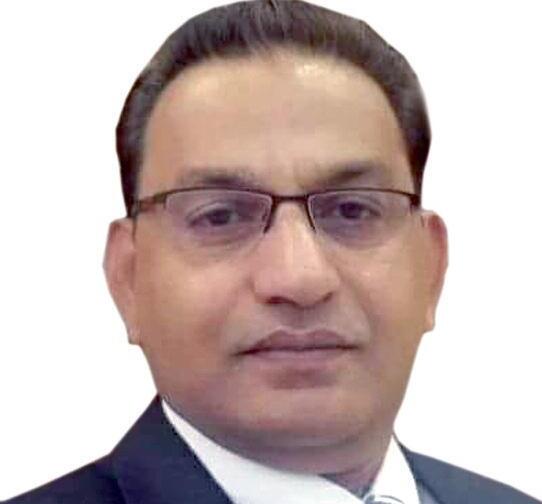
Is the world body dead or limping?
consolidation of dozens of UN agencies

Fdeliberate signals statements in absence When the leaders of some of the world s most powerful or most aggrieved states decline to use the UN as a platform, they diminish the institution’s
symbolic capital Once upon a time skipping the Assembly was a diplomatic snub with consequences; today it is a calculated irrelevance
The absences underscore how many capitals increasingly view the UN not as the place to make decisions but as a stage for secondary rhetoric, while real bargains are struck elsewhere whether bilaterally or through ad hoc groupings If the empty seats indicate apathy the delivered speeches frequently lacked substance US President Donald Trump returned to New York with familiar bravado, issuing stern warnings to Russia about continuing its war in Ukraine and to Israel about the risks of eroding global legitimacy through its Gaza campaign He threatened tariffs sanctions and diplomatic consequences Yet such warnings fell flat The war in Ukraine grinds on with little change in Moscow s calculus Israel, despite US pressure, continues its military operations, brushing aside Washington’s verbal admonitions The spectacle reveals a fundamental problem with modern summit diplomacy: loud threats without enforceable follow-through do little to alter entrenched behavior Trump s rhetoric may energize domestic audiences, but on the international stage it exposes the limits of US influence when not buttressed by allied consensus enforceable sanctions or credible deterrence In this Washington mirrors the broader malaise of the UN itself speeches without action declarations without implementation The United Nations is not just suffering politically; it is haemorrhaging financially The organization faces severe budgetary shortfalls in 2025 with major donors scaling back contributions The USA once the UN s largest funder has dramatically reduced its support The result is a looming wave of staff cuts and the potential downsizing or outright
At the same time public opinion surveys reveal that while citizens worldwide generally support the idea of international cooperation their trust in the UN as an institution is low In regions most affected by conflict the Middle East, Africa, and parts of Asia the UN is increasingly seen as ineffective, beholden to great powers or structurally incapable of responding swiftly to crises The gap between aspirations and delivery has never been wider Add to the mix the paralysis of the Security Council, where vetoes by permanent members routinely block decisive action, and the UN’s inability to enforce its resolutions becomes glaring Security Council statements have often failed to effectively protect civilians in Syria Myanmar and Ukraine The General Assembly passes symbolic resolutions, but without enforcement capacity, they remain little more than parchment declarations The UN’s crisis is not unique in history The Magna Carta of 1215 is remembered today as a cornerstone of liberty but in its time it was a compact among elites more symbolic than immediately transformative The Westphalian treaties of 1648 promised order but could not prevent Europe from plunging into repeated wars The League of Nations built in the aftermath of World War I collapsed under the weight of inaction as fascist powers trampled over its ideals The lesson is sobering: charters and treaties embody aspirations, but without the machinery of enforcement and the willingness of powerful actors to abide by them, they falter The UN Charter, with its ringing promise to “save succeeding generations from the scourge of war risks becoming
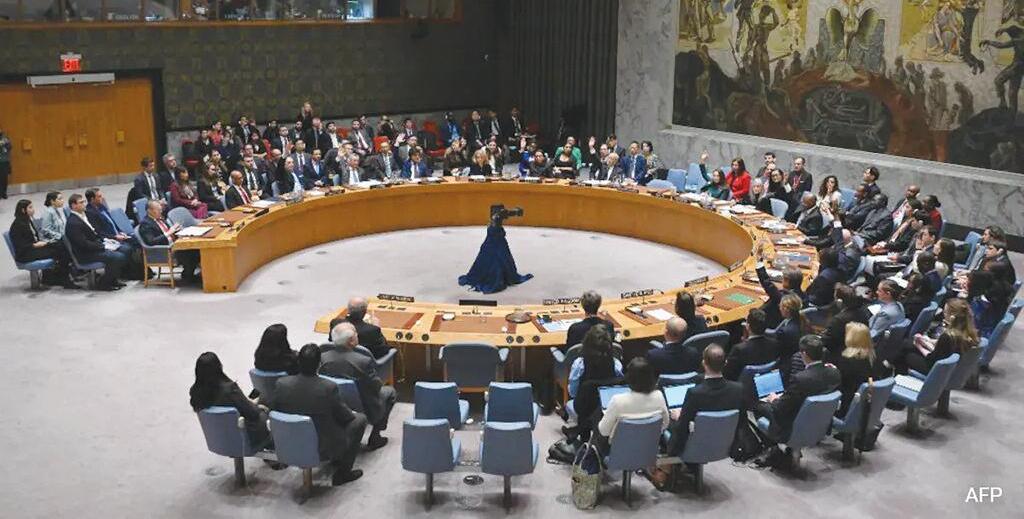
The United Nations is not dead but it is limping, and the limp is visible . UNGA 2025 has highlighted an organization that commands less respect, attracts fewer leaders, and delivers even less practical impact It has shown us a forum where warnings are ignored, conflicts rag e unchecked, and small nations feel abandoned The Magna Car ta, the League of Nations, and even the UN itself all remind us that noble words are fragile shields Without enforcement and political will, institutions collapse into irrelevance


It is neither, though very much depends on what comes next Their explanations notwithstanding, these acts of recognition need to be understood first and foremost as a response by governments aligned with Israel to growing public pressure to change course as a result of the Gaza genocide and the unprecedented shift toward support for Palestinian rights Concluding that business as usual was no longer a viable option, these governments opted for symbolic measures like sanctioning particularly vile Israeli officials suspending negotiations on trade agreements yet to be concluded and most recently diplomatic recognition of Palestinian statehood From the perspective of these governments the actions they chose to take were the least consequential available They do not entail any concrete policy changes toward Israel or require them to implement significant measures such as an arms embargo, economic sanctions, judicial prosecutions or travel restrictions Most important they do absolutely nothing to bring an end to the Gaza genocide Additionally these states have explicitly proclaimed that their purpose is to salvage the two-state paradigm and breathe new life into what they call the peace process This has been accompanied with a raft of demands and conditions about Palestinian governance, political participation and even national security policy that are typically absent from acts of recognition The entity they would like to see has all
While these are not insignificant issues, they only partially explain Israel s unhinged response The more significant issue, which
understands only too well, is that Western governments are for the first time since the emergence of the Zionist movement during the late nineteenth century taking measures in support of the Palestinians in response to popular pressure Previously such measures were taken for different reasons, such as a desire to placate Arab governments, an exasperation with Israeli conduct by Western governments, or a desire to serve what they believed to be Israel’s best interests But recognition represents the first time governments have been forced to act as a direct result of massive and growing public pressure from their own citizens
It is no longer Israel setting the agenda and terms of debate The finger has been removed from the dike, and Israel s fear is that continued popular pressure will cause the dam to burst It is in this context that Israeli prime minister Benjamin Netanyahu’s recent statements about his country becoming a “super Sparta” and embracing “autarky” must be understood This is of course total nonsense Israel is a small state with a small population with limited resources
It has no hope of dominating its region other than as a proxy for its Western sponsors and allies
The past two years have demonstrated how utterly dependent Israel is on Washington and also Europe for its military and intelligence capabilities its economic well-being and diplomatic and legal impunity To a much greater extent than South Africa s former white-minority regime Israel cannot survive without the West certainly not in its present form
Israel s fears that further public pressure on Western governments will result in not only declarative statements but concrete policy changes are therefore entirely justified
It is not as much alarm about recognition as such as it is anxiety about a failure of Western governments to divert popular anger by recognizing the state of Palestine and repeating well-worn slogans about peace and two states
Predictably Israel s right-wing supporters in the West have responded to growing support for Palestine with great replacement theory hysteria, seeking to promote the view that Palestine is an issue that solely concerns Muslim voters and that this undifferentiated constituency has bent Western governments to its will in its quest for global domination The Protocols of the Elders of Mecca
Even as popular movements in Western countries seek immediate and meaningful policy changes to bring an end to the unspeakable atrocity that is the Gaza genocide and to address the broader issues of Israeli apartheid and Zionism’s ideology of racist supremacy, seen from this perspective recognition can and should be understood as an achievement and even an important one
It demonstrates that even in a context where the schism between ruler and ruled is reaching levels last seen before World War II, if not the nineteenth century, activism can have an impact, does make a difference, and will compel governments to respond The challenge before us is to ensure that recognition is the start of a process that ends with the liberation of Palestine Mouin Rabbani is a researcher and longtime
of Middle Eastern
is also coeditor of Jadaliyya and a nonresident fellow at the Qatar-based Center for Conflict and Humanitarian Studies

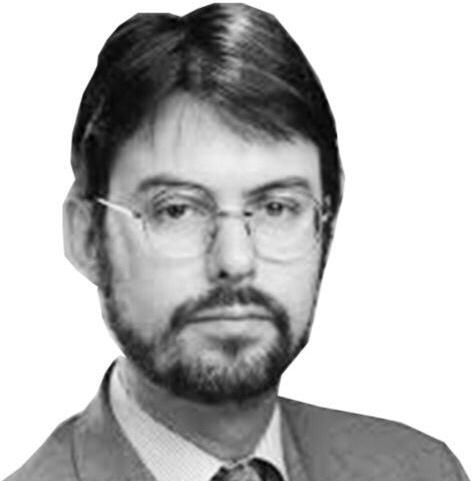
Tagainst British and European plans to deploy a reassurance force to Ukraine after a peace settlement This has been repeatedly and categori-
continues to be urged by some European governments with a blind determination that suggests that, rather than making a contribution to peace, they are actually interested in blocking any viable peace settlement As for the Russian fighters that entered Estonian airspace on September 19 Western media reporting has given the impression that they flew over Estonia itself They did not They deviated by a maximum of about five miles from their internationally recognized route over the sea along the middle of the Gulf of Finland They continued flying parallel to that route but close to it for about 12 minutes before reentering it This has not stopped wilder elements in the West from suggesting that the next time this happens NATO should shoot them down In normal circumstances, or between countries with normal relations this “incident” would hardly even be worth reporting The planes were on their way from St Petersburg to the Russian exclave of Kaliningrad Amid all the resulting NATO anxiety, it would be nice if someone reflected that it might have been a good idea for NATO to think about the risks of this before extending membership to the Baltic States and isolating Kaliningrad from Russia (Relatedly it is essential that NATO countries think about the risk of Russian military retaliation before deciding to intercept ships from Russia s shadow fleet in international waters, for this would in effect blockade Russian trade from the Baltic and cut off Kaliningrad by sea something that under international law constitutes an act of war and to which

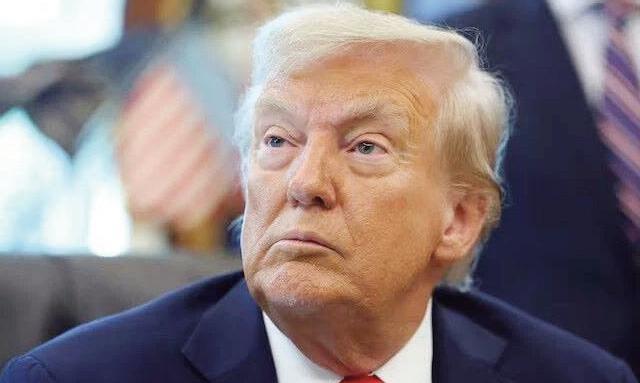
M ass walkouts at UN as Netanyahu takes stage
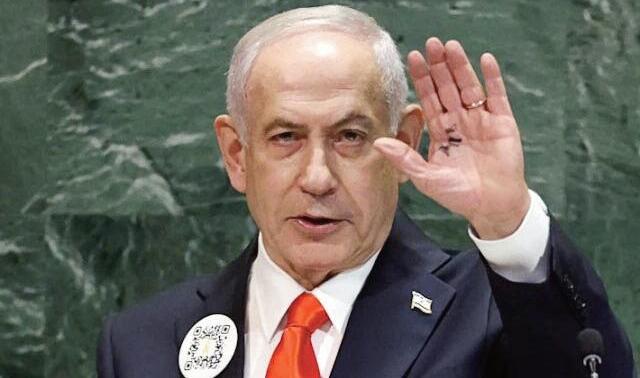
based in Canada, China, France, Germany, Luxembourg, the Netherlands, Portugal, Spain Britain and the United States
The UN rights office report called on companies to take appropriate action to address the adverse human rights impacts of their activities Where business enterprises identify that they have caused or contributed to adverse human rights impacts, they should provide for or cooperate in remediation through appropriate processes it stressed Turk said in a statement: This report underscores the due diligence responsibility of businesses working in contexts of conflict to ensure their activities do not contribute to human rights abuses ” MOSTLY ISRAELI FIRMS

poles created a web of powerless electric wires on the ground
The United Nations on Friday released a long-awaited update of its database of companies with activities in Israeli settlements in Palestinian territories listing 158 firms from 11 countries UN rights chief Volker Turk has condemned as a war crime Israel s policy of settlements on Palestinian territory in the occupied West Bank Big firms such as Airbnb, Booking com, Motorola Solutions and Trip Advisor remained on the list while several companies including Alstom and Opodo were removed the non-exhaustive
database showed Most of the companies were based in Israel while others were based in Canada China France Germany Luxembourg the Netherlands Portugal Spain Britain and the United States The UN rights office report called on companies to “take appropriate action to address the adverse human rights impacts” of their activities The United Nations released a longawaited update of its database of companies with activities in Israeli settlements in Palestinian territories, listing 158 firms from 11 countries UN rights chief Volker Turk has condemned as a war crime Israel’s policy of settlements on Palestinian territory in the occupied West Bank Big firms such as Airbnb Booking com, Motorola Solutions and Trip Advisor remained on the list, while several companies including Alstom and Opodo were removed the non-exhaustive database showed Most of the companies were based in Israel while others were
The list was first produced by the UN human rights office in 2020 amid harsh Israeli criticism
It came in response to a UN Human Rights Council resolution four years earlier demanding a database of firms that profited from business in illegally occupied Palestinian territory
The UN rights office was asked to list companies found to be taking part in any of 10 specific activities, including construction, surveillance, demolitions and destruction of agricultural land in Israeli settlements in the West Bank, including East Jerusalem
It has stressed that listing companies in the database was not and does not purport to be, a judicial or quasi-judicial process
Despite a requirement for the database to be updated annually, it has been revised just once before That was in 2023 when only the 112 firms that had figured on the original list were reviewed
Fifteen of them were removed for various reasons, leaving 97
Tehran, Moscow sign $25b deal to build nuclear plants in Iran: state media
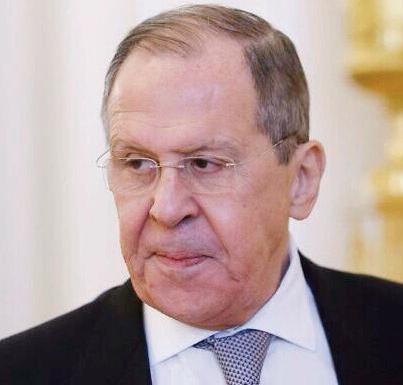

Taliban bans women from receiving treatment by male dentists in Kandahar

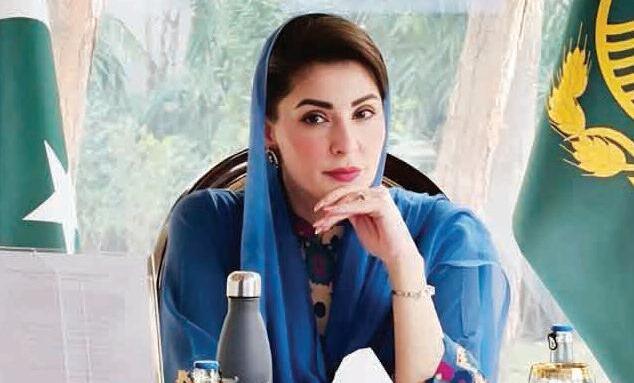
Message by Mr. Bastien Blanc CEO – Hospitalit y Division, Hashoo Group
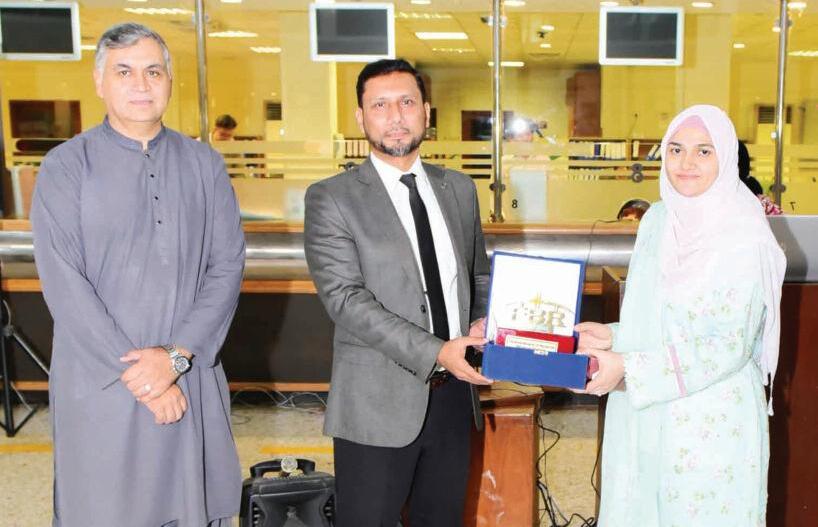



benefiting the community Speaking at the inauguration Mr Zubair Shaikh, CEO of Wafi Energy, said: At Wafi Energy, sustainability is not just a commitment - it is a responsibility
COMSATS launches Int’l Training Program on Cyber Securit y
ISLAMABAD S ta f f r e p o r t Commission on Science and Technology for Sustainable Development in the South (COMSATS) in collaboration with its technology partner KhasTech Solutions (KTS) has launched Certified Information Systems Security Professional (CISSP) Certification Bootcamp, a comprehensive online training program, particularly for young professionals, aimed at creating a generation of Cyber Security Experts The 8-week course of CISSP is the first of a series of training courses under COMSATS program for skill development Over 140 cyber security professionals including IT professionals and Government Officers from 16 countries viz Ghana Iran Jamaica Jordan Kazakhstan, Morocco, Nigeria, Pakistan, Palestine, Somalia, Sudan, Syria, Tanzania, Türkiye, Turkmenistan, and Yemen, have been enrolled for the training The inaugural ceremony was attended by Ambassadors and diplomats of COMSATS member states in Islamabad The representatives of COMSATS Focal Points and Centres of Excellence from across Asia, Africa, Middle East, and Latin America as also Partner organizations Representatives and registered trainees participated, online Executive Director COMSATS, Ambassador Dr Mohammad Nafees Zakaria highlighted the importance of the course He stated that cybersecurity is a critical domain for economic stability and national security as the digital transactions governance and communication increasingly rely on secure platforms Amb Zakaria asserted that building expertise in this field will not only create career opportunities but also safeguard our collective digital future
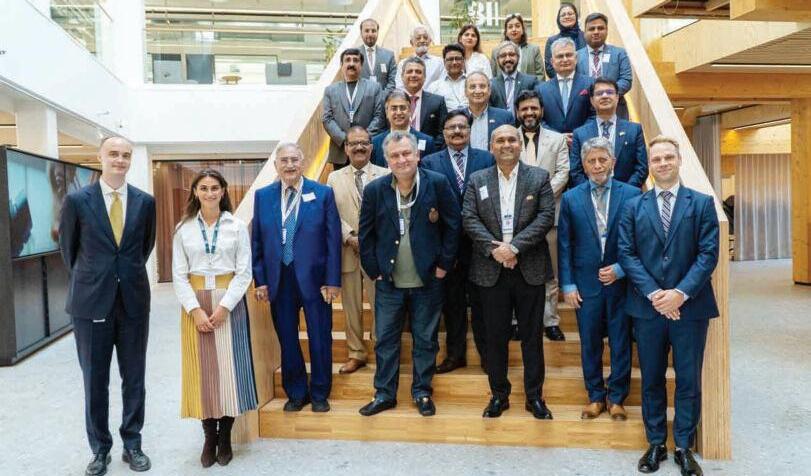




PTI LEADERS VOW SEPTEMBER 27 RALLY WILL MARK TURNING POINT AGAINST ‘HYBRID SYSTEM’
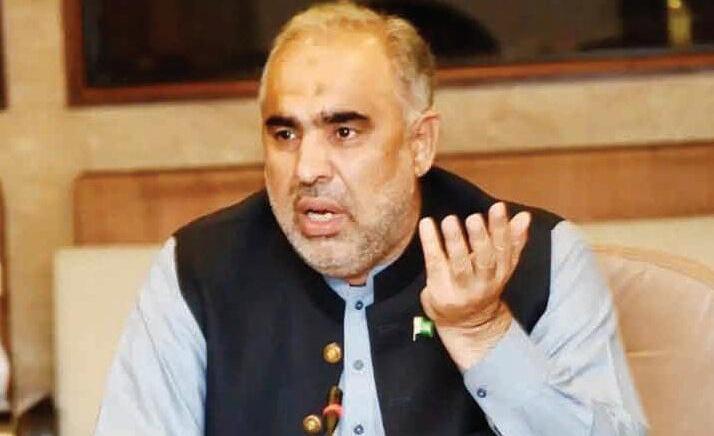
Pakistan, China establish first regional seismic and geophysical observatory in Karachi
s ta f f r e p o r t
The Pakistan Meteorological Department (PMD) in partnership with China s Second Institute of Oceanography has inaugurated the China-Pakistan Comprehensive Seismic and Geophysical Observatory in Karachi the first facility of its kind in South Asia Chief Meteorologist Ameer Haider Leghari said the observatory combines three advanced functions: Global Navigation Satellite System (GNSS) observations seismic monitoring for earthquakes and geomagnetic measurements to study magnetic storms This facility will also help us analyze energy accumulation along tectonic faults, which is vital for understanding earthquake risks in Pakistan,” he explained Pakistan has maintained geomagnetic observatories in Quetta Gilgit and Karachi since 1952 though these relied on first-generation systems The new Karachi centre represents the third generation equipped with state-of-theart instruments and digital processing capabilities Leghari acknowledged the high installation costs due to specialized hardware and software, crediting Chinese support for making the project possible He said the observatory would strengthen disaster preparedness and scientific research in Pakistan As part of the collaboration Pakistani scientists will undergo training in China to gain expertise in the new technologies and their applications
According to the PMD, the observatory will not only improve earthquake and geomagnetic monitoring at home but also contribute to global networks that study space weather phenomena such as magnetic storms which can disrupt communications navigation systems and electricity grids worldwide
LHC
questions non-provision of militar y cour t verdicts, adjourns plea till Oct 21
LAHORE s ta f f r e p o r t The Lahore High Court (LHC) on Friday heard a constitutional petition challenging a military court verdict, with Justice Syed Shahbaz Ali Rizvi questioning the admissibility of the plea and the nonprovision of copies of military court decisions Justice Rizvi took up the petition filed by Arzam Junaid Assistant Attorney General appeared on behalf of the Federation while Assistant Advocate General Punjab Farrukh Khan represented the provincial government Prosecutor Rai Sarfaraz produced the military court records, and Advocate Junaid Razzaq represented the petitioner At the outset, Assistant Advocate General Farrukh Khan objected to the petition’s maintainability, arguing that previous rulings declared such cases inadmissible Justice Rizvi however observed: “This may be correct regarding objection number six but what about giving them copies? Responding, Farrukh Khan cited Section 130 of the Military Rules, which states that if the Army Chief deems any action sensitive to national interest, its copy shall not be made public When Justice Rizvi asked, “From which book did you read Section 130?” the prosecutor presented the Pakistan Army Rules volume in court and read aloud the relevant provision
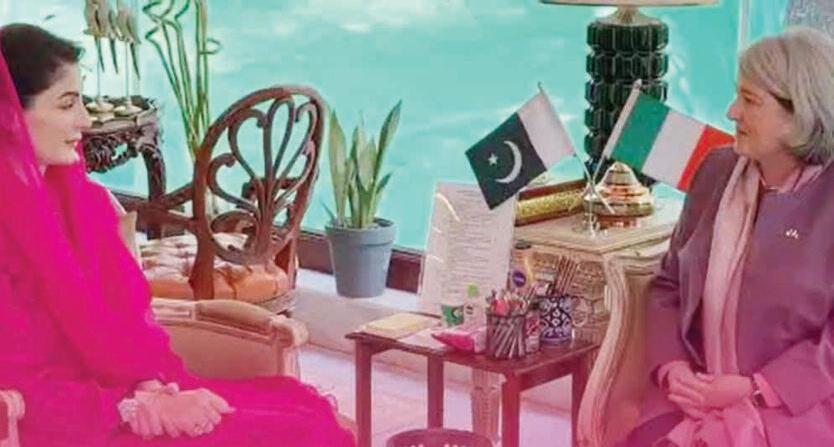
marked urging continued efforts to reform the system
Imaan Mazari urges IHC to ac t on harassment complaint against C J Dogar
LAHORE s ta f f r
Imaan Mazari, a lawyer, has filed a grievance with the Islamabad High Court (IHC) over what she perceives as the lack of action on her harassment complaint against Chief Justice Sardar Sarfraz Dogar
In her letter to Justice Inaam Ameen Minhas, the competent authority under the Protection against Harassment of Women at the Workplace Act, 2010, Mazari emphasized that the law requires charges to be communicated to the accused within three days and a defense to be filed within seven Despite this, Mazari stated she had not received any updates on her case Mazari also criticized the replacement of Justice Saman Rafat Imtiaz who had initially taken cognizance of her complaint describing the move as unlawful She argued that the accused cannot alter the competent authority to impede the progress of her complaint Furthermore, Mazari accused IHC CJ Dogar of continuing acts of reprisal after the filing of her complaint citing a recent hearing where her request for a transfer of her client Dr Mahrang Baloch s case was rejected by Dogar
The conflict between Mazari and CJ Dogar began on September 11 during a hearing on Mahrang

Baloch s petition to remove her name from the Exit Control List
During the hearing, Dogar reportedly told Mazari to stay quiet and within the limits of respect accusing her of calling him a “dictator ” Dogar further warned of contempt charges and made remarks directed at Mazari s husband, Advocate Hadi Ali Chatta Mazari, however, stood firm in her professional capacity and argued that her client’s case should not be impacted by the judge s grievances Following the incident Mazari took steps to document the harassment, requesting the preservation of CCTV footage of the courtroom However, her application for evidence preservation was
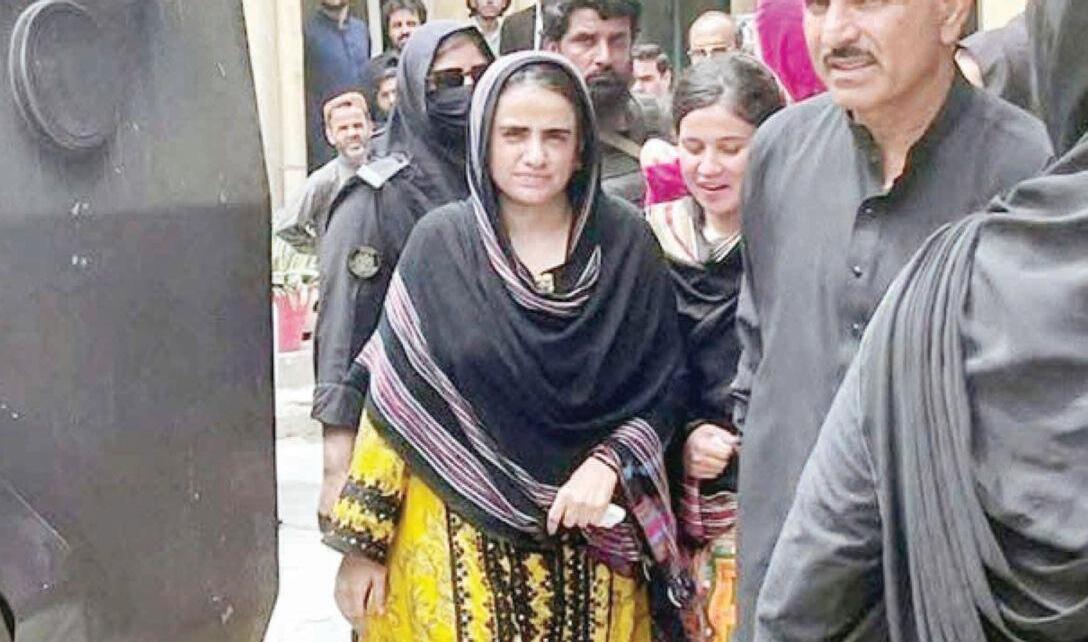
QUETTA
s ta f f r e p o r t
An anti-terrorism court (ATC) in Quetta on Friday refused to extend the physical remand of Baloch Yakjehti Committee (BYC) leader Dr Mahrang Baloch and four other organisers, directing that they be shifted to jail on judicial remand Advocate Israr Jatak a member of the BYC legal team confirmed the development saying the court had rejected a request by the Counter Terrorism Department (CTD) to prolong custody “Quetta ATC-1 refused to extend the physical remand of five accused Mahrang Bebow Baloch Sibghatullah Shahji Beberg Baloch and Gulzadi and ordered them to be sent to jail, he told reporters Judge Muhammad Ali Mubeen presided over the hearing, during which CTD officials produced the accused at the end of their 15-day phys-
ties confirmed that the Kot Chandna camp in Mianwali was shut after they claimed to have facilitated the repatriation of nearly 43,000 Afghans since April under Pakistan s Illegal Foreigner Repatriation Plan (IFRP)
left unanswered
The matter escalated further when, on September 15, Mazari filed a formal harassment complaint with the IHC Women’s Harassment Inquiry Committee chaired by Justice Imtiaz She argued that Dogar s remarks were gendered and threatening, falling within the scope of workplace harassment
The situation has continued to garner widespread attention, with national bar associations condemning Dogar s remarks and some calling for his removal In the midst of the controversy Mazari also faced additional pressure, with a reference filed by advocate Adnan Iqbal seeking the cancellation of her law license
ical remand granted on September 11 Advocates Shoaib Mengal and Israr Jatak appeared for the defence The CTD argued for an extension but the judge turned down the request ordering that the accused be handed to jail authorities
The case dates back to March
BYC leaders were arrested after
pearances in Quetta Authorities accused them of attacking the Civil Hospital and inciting people to violence Initially detained under Section 3 of the Maintenance of Public Order (MPO), Mahrang’s custody was repeatedly extended by the Balochistan Home Department Later cases were registered against her and other organisers under various provisions of the Anti-Terrorism Act and Pakistan Penal Code
Formed in 2018, the BYC is an advocacy group that campaigns against enforced disappearances in Balochistan
Under the plan Afghans without valid documents or those who overstayed were placed in holding centres until they were transported to the Torkham border Punjab Home Secretary Dr Ahmad Javed Qazi said all camps in the province had now been closed and that intercepted Afghans were kept in district-level facilities before being sent to Afghanistan at the government s expense All Afghans residing in Pakistan have to leave except those holding valid visas, he said Pakistan has hosted Afghans for decades, particularly during successive conflicts but officials argue the continued influx places pressure on public services and raises security concerns The UN estimates that more than 3 5 million Afghans remain in Pakistan, nearly half of them undocumented, including about 700,000 who fled after the Taliban takeover in 2021
